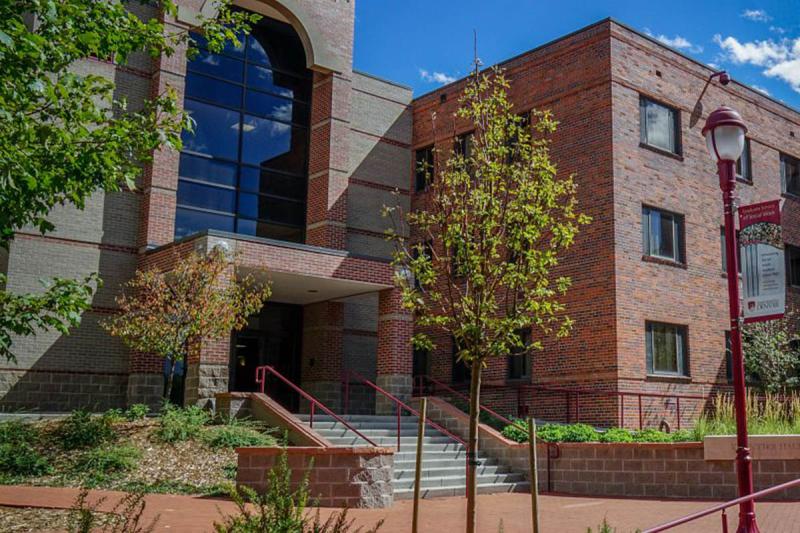Center for Child and Family Psychology’s Couples Therapy Clinic Reopens, Continues Low-Cost Services

Couples struggling with relationship problems can again access in-person or online, cutting-edge, low-cost, research-based therapy at the University of Denver’s Couples Therapy Clinic, reopening Sept. 1, 2022, and available to members of the community on a sliding scale. Supervised by Distinguished Professor of Psychology and Couples Clinic Director Howard Markman, the clinic’s highly trained graduate-student therapists deliver evidence-based, skills-focused, short-term, therapeutic services developed by Markman.
Based on 40 years of research, Markman’s successful couples therapy approach has been widely recognized by local and national media outlets and featured on “Oprah” and the “Today” show. The skills-intensive treatment has been shown to increase relationship satisfaction, improve communication and conflict management skills and decrease and prevent domestic violence.
The need for effective, affordable, proven couples therapy has never been greater as a result of the ongoing COVID-19 pandemic and financial stressors recently exacerbated by the war in Ukraine and inflation, according to Markman.
“COVID was difficult and remains difficult because people had to talk about what they’re comfortable with,” Markman said. “Are we going to wear masks? Are we going to send our kid back to school? Are we going to take a trip? The more couples need to talk and deal with issues, the more they need basic communication and conflict-management skills and most couples lack those skills. People resort to unhealthy communication and the more people need to negotiate; the worse things get when you lack those skills. These skills can be learned and having these skills increases the chances of having a happy relationship. What we find in our research is that it's not the differences that matter as much as how couples handle differences and these are skills that can be learned."
Markman says that, even before COVID, couples experienced common problems primarily related to finances, communication, sex, and, for parents, children.
“High on the list for many couples is handling social media in the family, lack of time together, and differences in level of commitment to the relationship, especially for younger couples,” Markman said.
But a lack of trained couples’ therapists, research-based approaches and affordable options makes it difficult for couples to find effective help. Additionally, Colorado couples experience a 15% to 20% higher divorce rate than elsewhere in the U.S., Markman says.
“People come to Colorado with high expectations that the move is going to help their lives and their relationships,” Markman said. “High expectations lead to more disappointment and dissatisfaction.” Then, too, people who have moved to Colorado often lack valuable, relationship-boosting family and community support, such as “grandparents who hang out with the kids, that sort of thing,” Markman said.
The Couples Therapy Clinic also provides couples with educational services focused on improving communication and managing conflict. The clinic is part of the University of Denver’s Center for Child and Family Psychology, offering low-cost psychological assessments and therapy for children, adolescents, adults and couples.
“When couples aren’t doing well, their kids aren’t doing well,” Dr. Markman says. “A lot of times couples’ main motivation for doing therapy is to help them have a happier relationship because they know it will increase their children’s well-being.”
Clients can arrange to receive Couples Therapy Clinic services in-person or online through Telehealth (using video technology). For more information about the Couples Clinic and other child and family psychology services call 303-871-3306.


